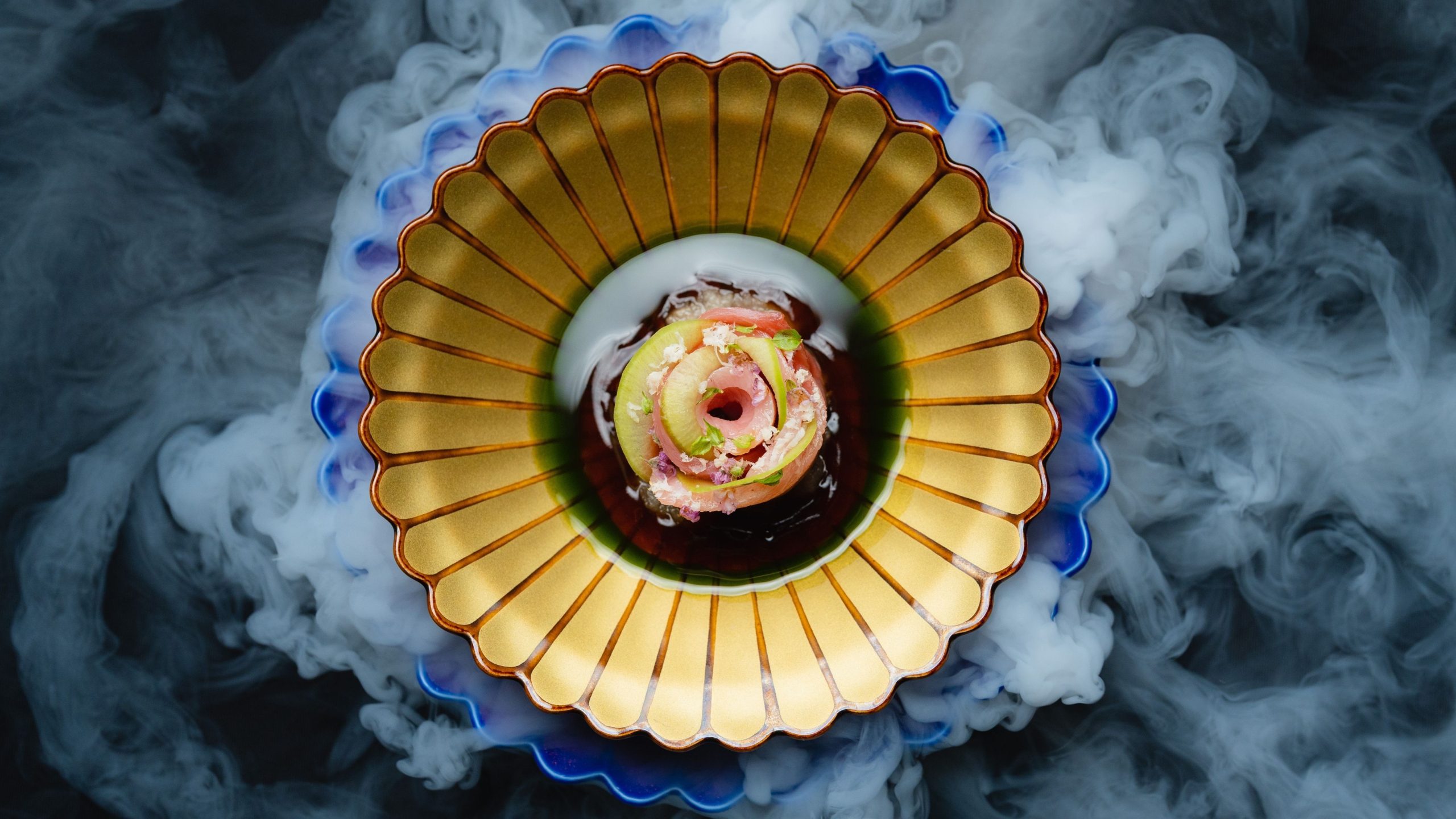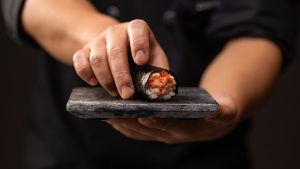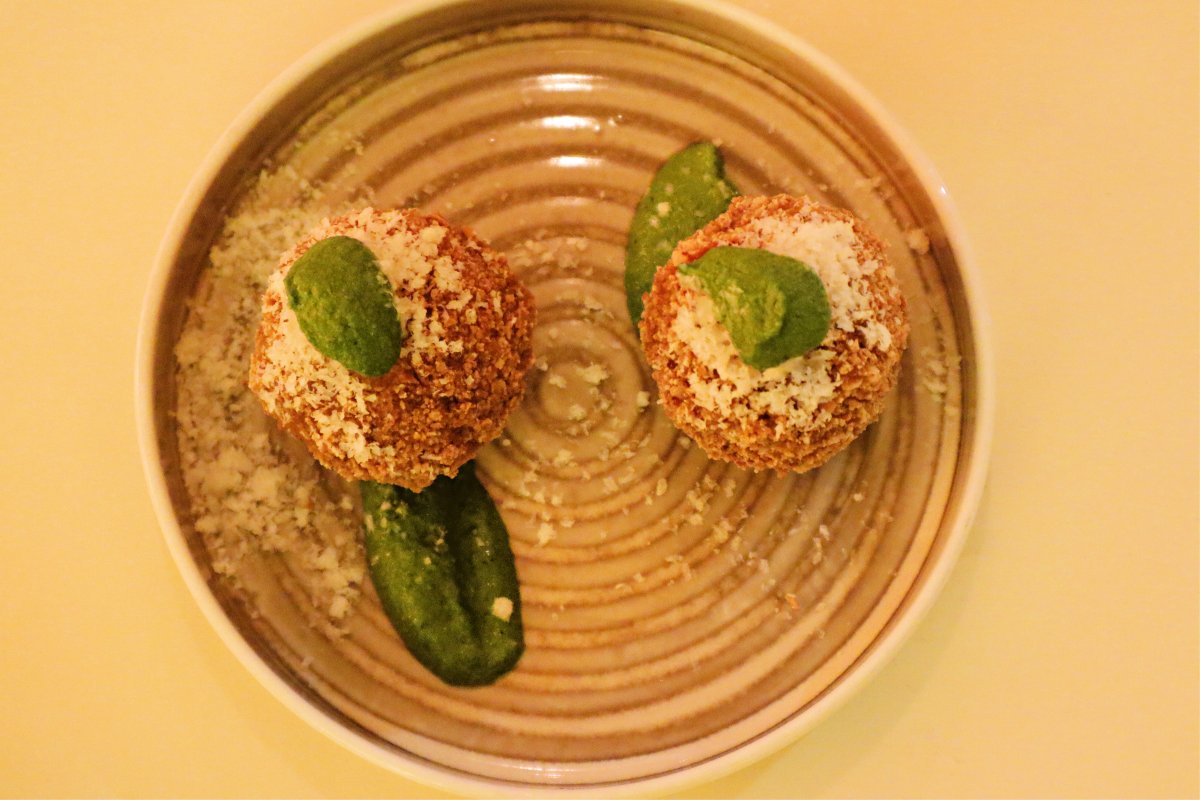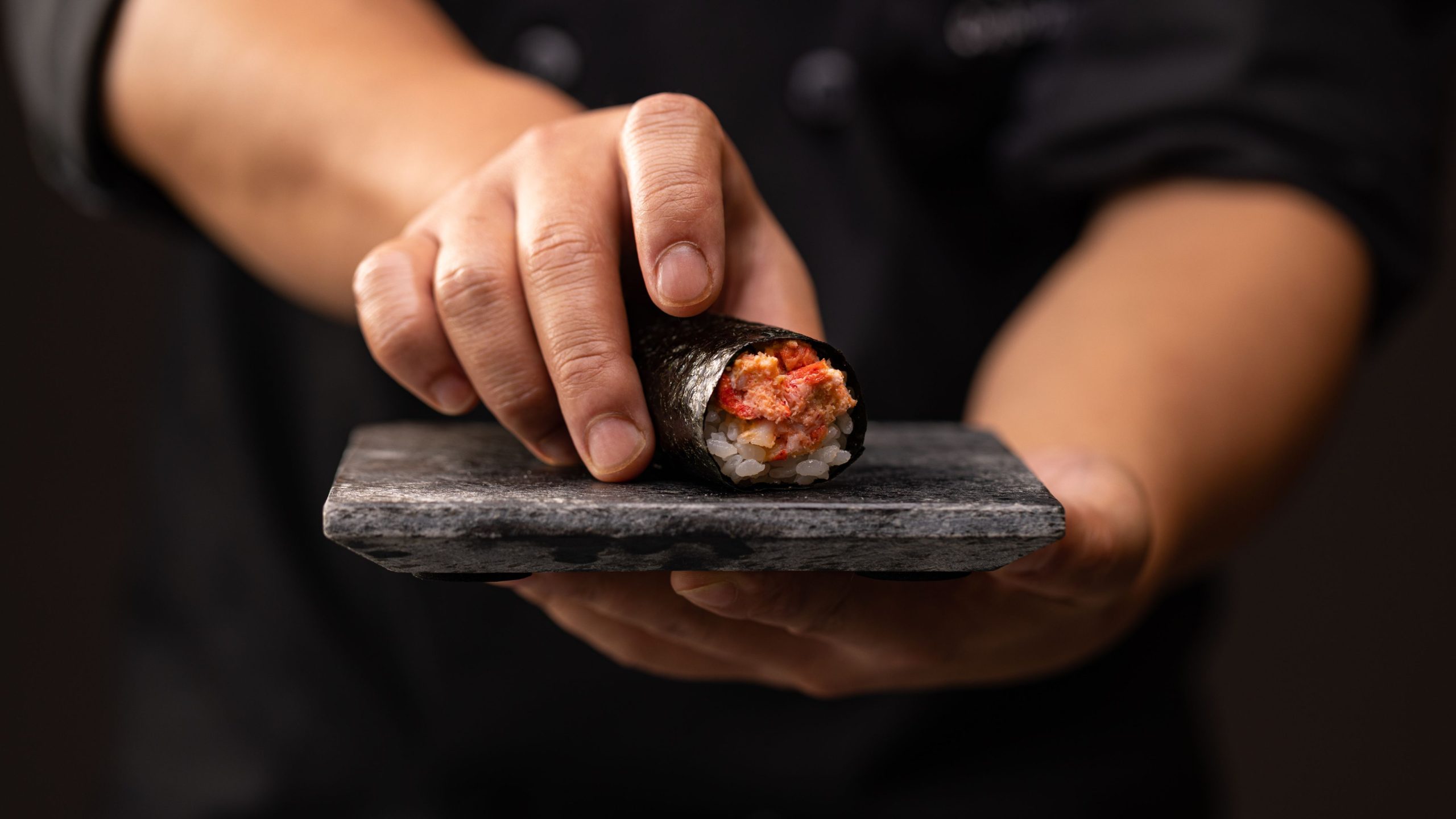Just over a year ago, the MICHELIN Guide arrived in Canada to great fanfare. 13 Toronto restaurants received their first MICHELIN star in 2022 (Sushi Masaki Saito, in Yorkville, was the only restaurant awarded two stars). 17 others received a Bib Gourmand Award, given to “best value for money restaurants” that offer “a three-course meal at a reasonable price.”
Recently, MICHELIN released their selections for the 2023 MICHELIN Guide Toronto. New this year was the announcement of Toronto’s first MICHELIN Green Star, along with 21 new Bib Gourmands, and two new additions (Kappo Sato, Restaurant 20 Victoria) to the exclusive list of MICHELIN-starred eateries in Canada.
In celebration of this year’s big announcement, we reached out to eight chefs from the inaugural lists to find out what it’s been like running a MICHELIN-recognized restaurant over the past year.
Here’s what they told us.
Presented by


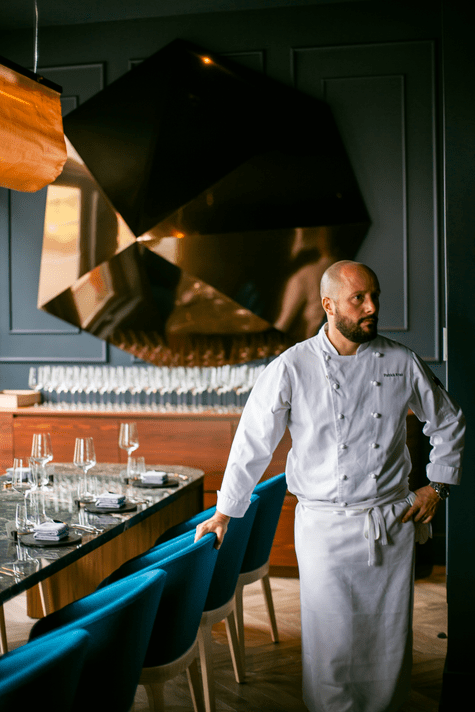

Patrick Kriss
Chef and Owner
Alo and Alobar Yorkville
Designation: One Star
Were there any immediate impacts for your restaurant after receiving a MICHELIN star?
Patrick Kriss: I think our biggest impact was at Alobar in Yorkville, where we would get earlier diners. Sometimes it’s hard to get a five o’clock, and then right when that happened, we started getting more five o’clock reservations.
What has been your favourite memory at the restaurant since receiving the recognition?
Patrick Kriss: One is at the event when Christopher Sealy won best [sommelier]. Seeing him get recognized for all of his hard work…seeing him go up with a glass of wine, I was more excited about that than the MICHELIN star. And second, is all the customers who have been dining with us from day one and how they felt a part of it. I think they were more excited than we were about getting it. So just seeing all of them come in and congratulate us, and seeing Alo through the years, since 2015, grow up and mature into what it is today.
What is most surprising for you about being on the inaugural Toronto list?
Patrick Kriss: I’ve worked in MICHELIN stars before…so I’m not sure if I was surprised by anything. [But] when you’re in it, when you’re an owner and the chef of the restaurant, it’s a little different than when you’re a cook. There’s more pressure.
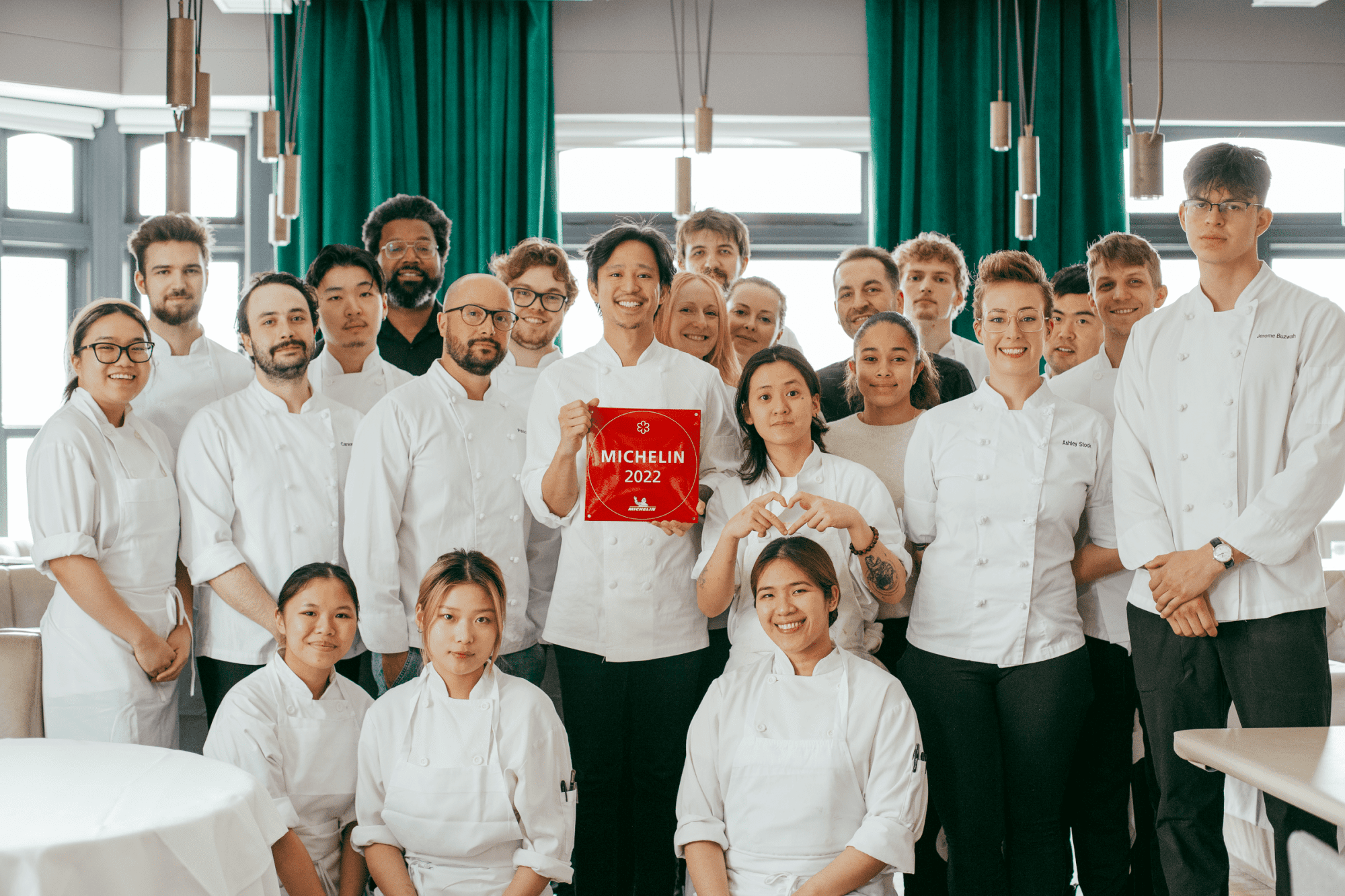

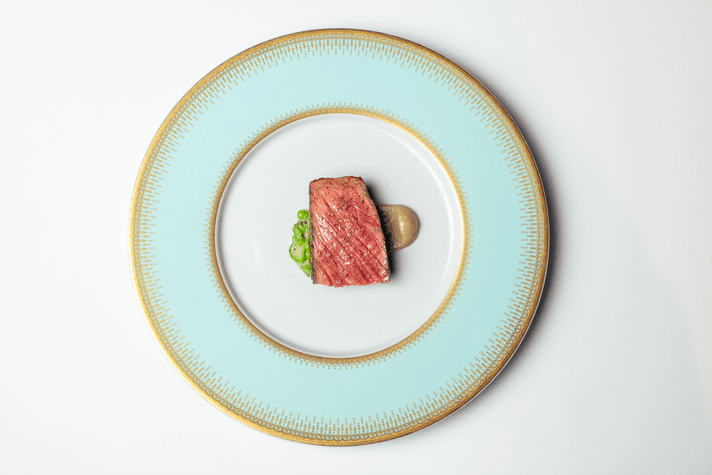

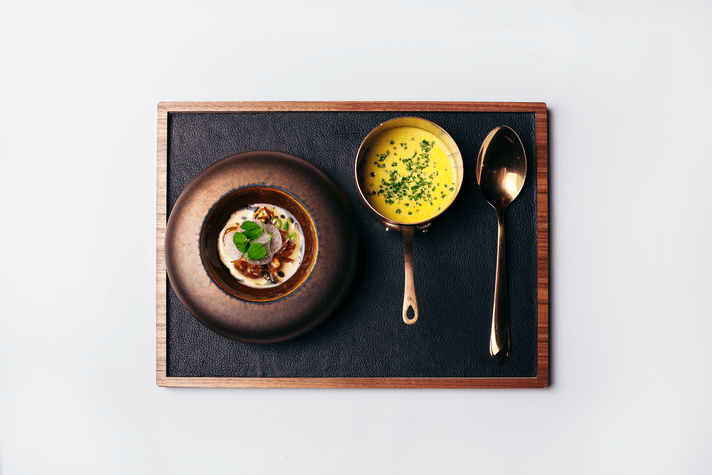

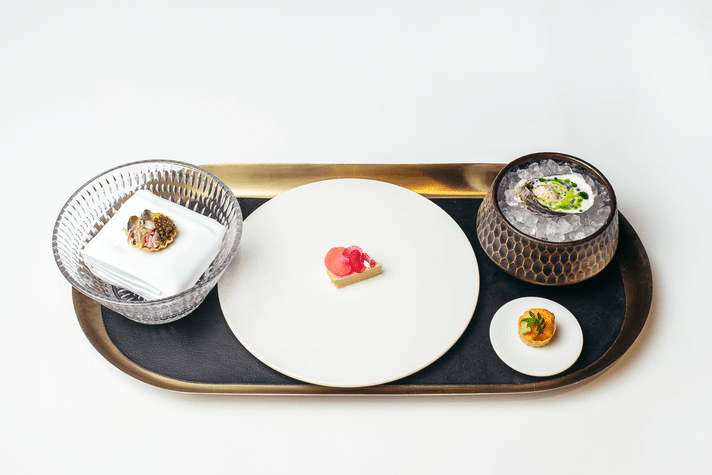

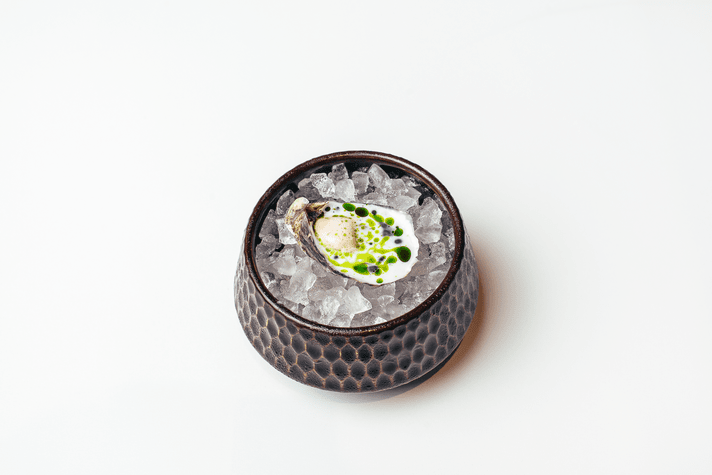

Almost a year later, is your MICHELIN star still impacting reservations?
Patrick Kriss: I kind of stopped paying attention to that. Alo’s always been full, we’ve always been busy so it’s the same. Alobar had probably our best summer ever; we do have a patio. So MICHELIN probably did have an impact on that. It introduced us to a lot of new customers that maybe might not have come to Yorkville.
Have there been any downsides or challenges to the recognition?
Patrick Kriss: No, I don’t think so. I think it’s been well received. I think it’s great for the city, and I think it’s great for the community.
Do you have any advice for Toronto chefs or restaurateurs who received their first MICHELIN star this year?
Patrick Kriss: After you get the star, don’t change what you’re doing…[Sometimes] you kind of have this preconceived notion of what a MICHELIN star is, and then people start changing. But keep doing what you’re doing. Try to master it and excel at it, but don’t change what you’re doing. You’re there for a reason. You were there because everything you did got you there.
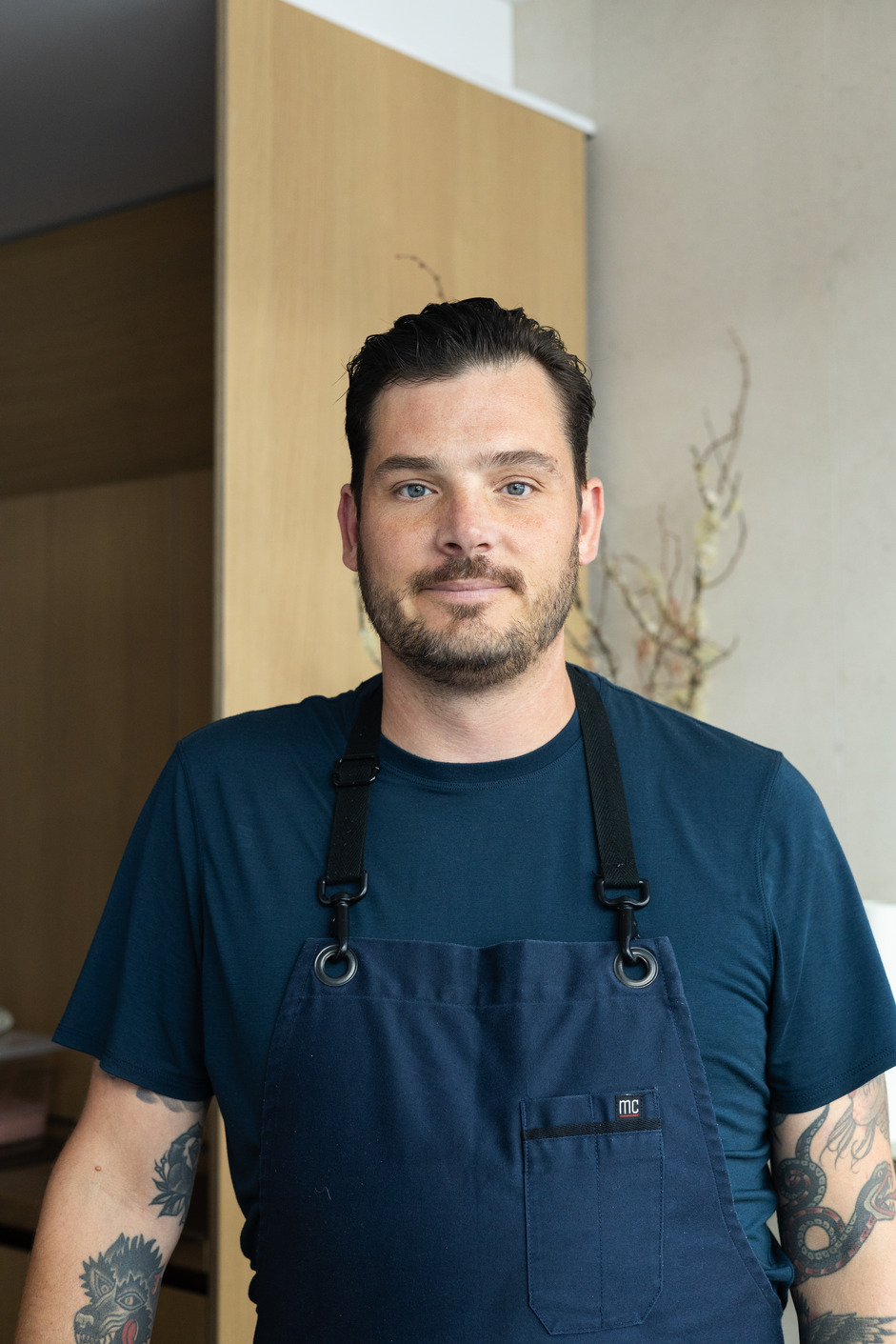

Rob Rossi
Chef
Designation: One Star
Were there any immediate impacts for your restaurant after receiving a MICHELIN star?
Rob Rossi: I think a lot of it was just the excitement within the organization itself. A lot of the chefs and the staff, I think they definitely feel validated by it, which is great because it boosts morale and shows the individuals working there that all the hard work that they’ve done means something. Sometimes it’s hard to feel a tangible sense of accomplishment in a restaurant where every day it just starts again. I think for the staff, that was a really big one, but in terms of business, we were always quite busy and the reservations were always booked out 30 days in advance. I don’t think we saw an immediate push in terms of business, but we see more of a consistency now, where we know it’s going to be full…every seat is full every night, which is fantastic.
What has been your favourite memory at the restaurant since receiving the recognition?
Rob Rossi: I think just watching the food evolve, watching my chefs just take things to different levels. That’s very exciting for me. Part of receiving a MICHELIN mention or an award is the fact that you’re consistent, and watching the food evolve and stay consistent, through its concept and just the execution of it all, that’s exciting for me. And of course, to see the plaque on the wall—that’s also cool.
What is most surprising for you about being on the inaugural Toronto list?
Rob Rossi: I think just the fact that we got one…just the idea that we got a star was very surprising because obviously we try to do our best, and we never build restaurants or menus based on accolades. I think that’s something that should always remain true. You don’t build a restaurant with the intention of getting a MICHELIN star. You build a restaurant with the intention of wanting to make a great restaurant. So the byproduct of that is accolades, and it was just a surprise because I had never put [us] in that category. Not that I thought we were less, but I just focused more on making people happy.
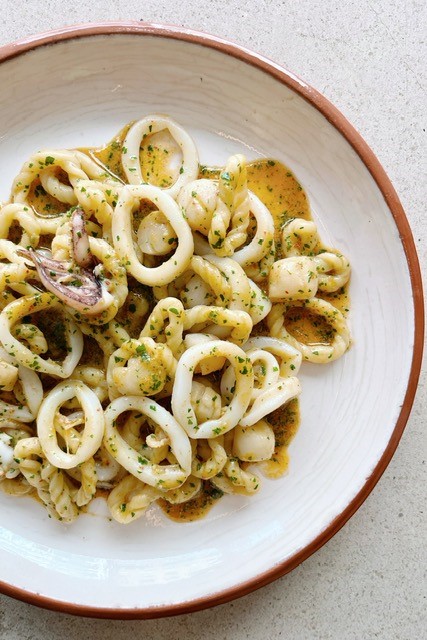

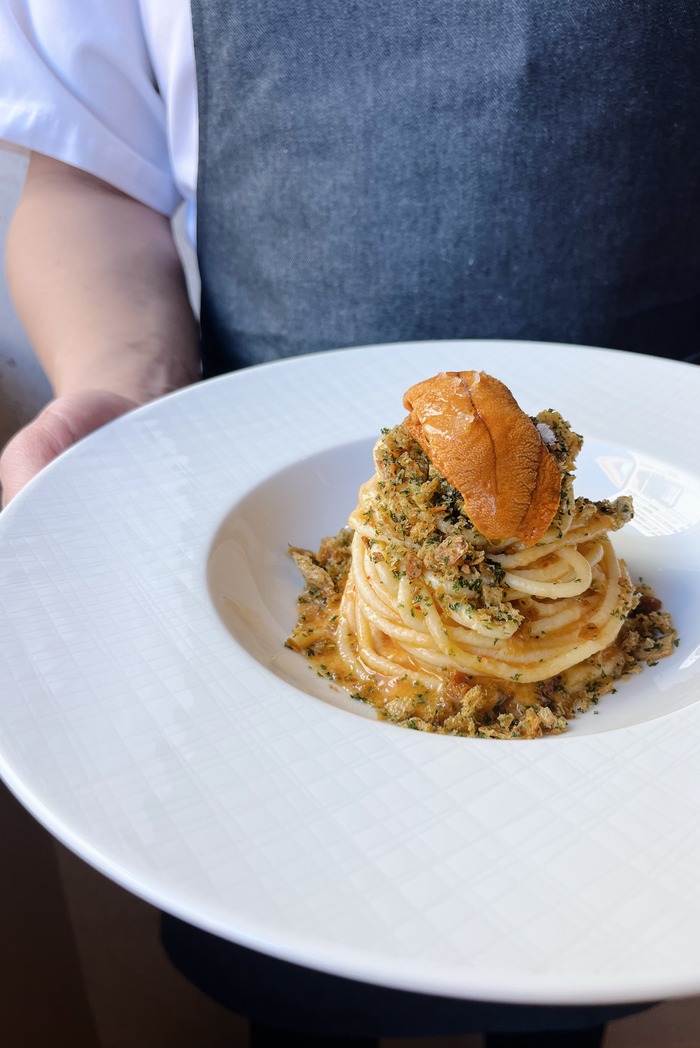

Almost one year on, is your MICHELIN star still impacting reservations?
Rob Rossi: Yeah, for sure. It’s still very busy and…I think there’s a lot of people that are literally opening up the guide on their phone and they’re saying, “Hey, I want to go visit all the restaurants in here.” Whether or not they have a Bib Gourmand or a star or two stars, they want to go and almost do a pilgrimage by going through all the restaurants. They do their own ratings of them too. It’s pretty interesting.
Have there been any downsides or challenges to the recognition?
Rob Rossi: I think the downsides come from reviews that people leave, and they’ll say, this is not a MICHELIN-starred restaurant. I think that there’s a lot of misconception with the MICHELIN guide too, where people are like, oh, it’s a MICHELIN-starred restaurant. This is the top of the top. All it really means is it’s a very good restaurant…Food is subjective. Just because there’s a star, it doesn’t mean you’re going to love every dish.
Do you have any advice for Toronto chefs or restaurateurs who received their first MICHELIN star this year?
Rob Rossi: Something that we speak about all the time at the restaurant between myself, my partner, the chefs, and the front-of-house managers is that it’s not the time to start to do something different. We create different things, yes, but conceptually and fundamentally, you shouldn’t change things because you think you’re going to get a star or you want to get a star. You can always improve on everything, of course, but sometimes people get a star and then they radically change things and they try to up the ante. I think receiving a star, it’s more simplistic than people give it credit for. It’s just that you’re doing things in a consistent manner and you’re doing it over and over and over again. There’s something to be said about consistency.
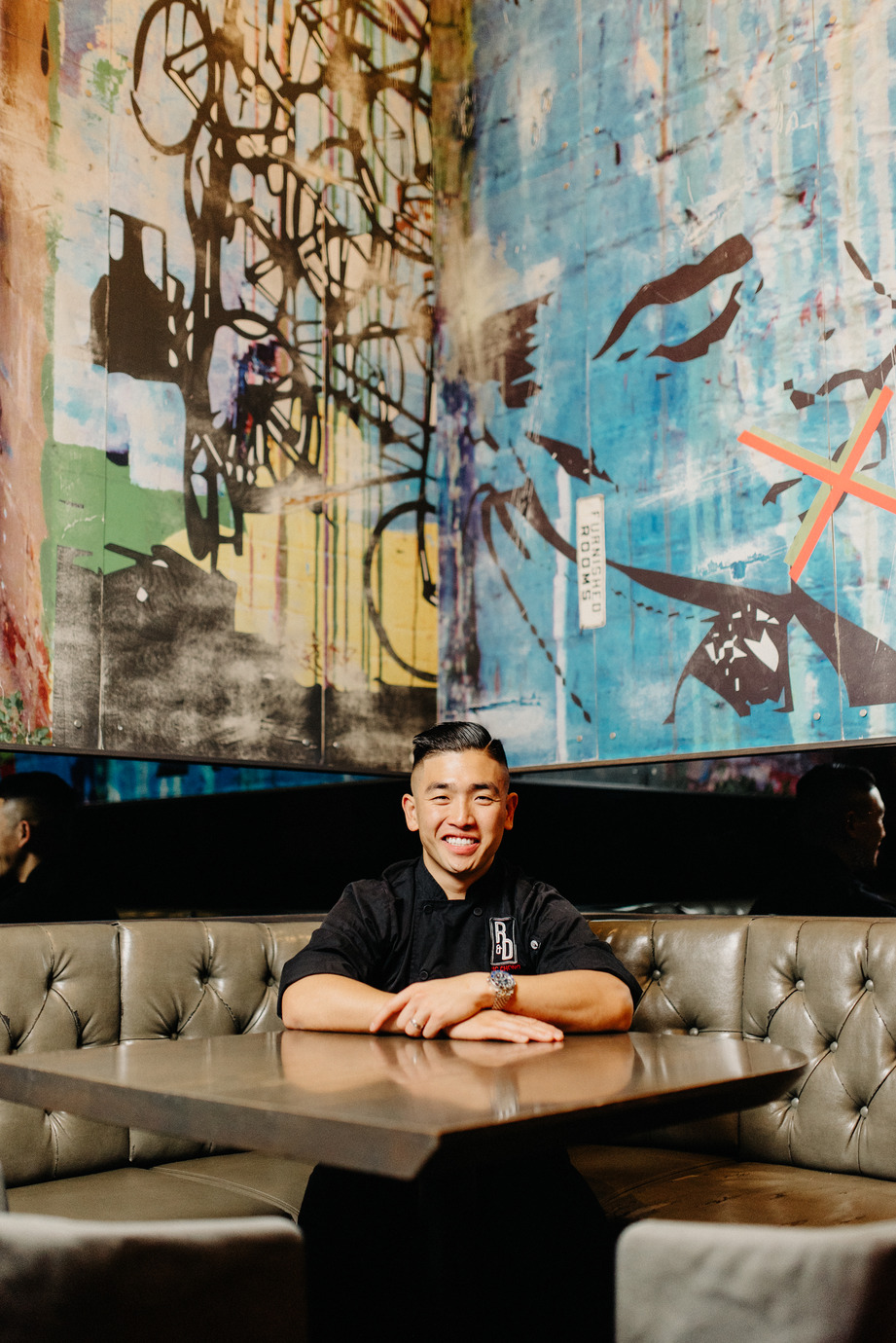

Eric Chong
Chef and Partner
Designation: Bib Gourmand
Were there any immediate impacts for your restaurant after receiving a Bib Gourmand Award?
Eric Chong: When MICHELIN was announced and R&D Restaurant, as well as Cafe Boulud, was assumed to be on the list since we were the two restaurants to announce the guide, there was definitely an influx of customers at R&D. Fridays and Saturdays have always been busy for us, but what was surprising was that our Wednesdays, Thursdays, and Sundays were full as well. Many customers were saying how they heard of us from the MICHELIN Guide announcement.
What has been your favourite memory at the restaurant since receiving the recognition?
Eric Chong: My biggest joy was mounting the MICHELIN plaque in the restaurant. It is a validation that the restaurant serves delicious food and that all this hard work over the years has paid off.
What is most surprising for you about being on the inaugural Toronto list of restaurants?
Eric Chong: I think the fact that we are even on the list! To be in the same guide as many of my idols and other chefs I look up to so much is a true honour. It has always been a dream to be a MICHELIN-starred chef (yet to happen but hopefully with my next tasting menu restaurant opening next year it will come true!) For the longest time that dream was thought to be impossible, then MICHELIN finally decided to come to Canada which meant I no longer had to move to earn a MICHELIN star.
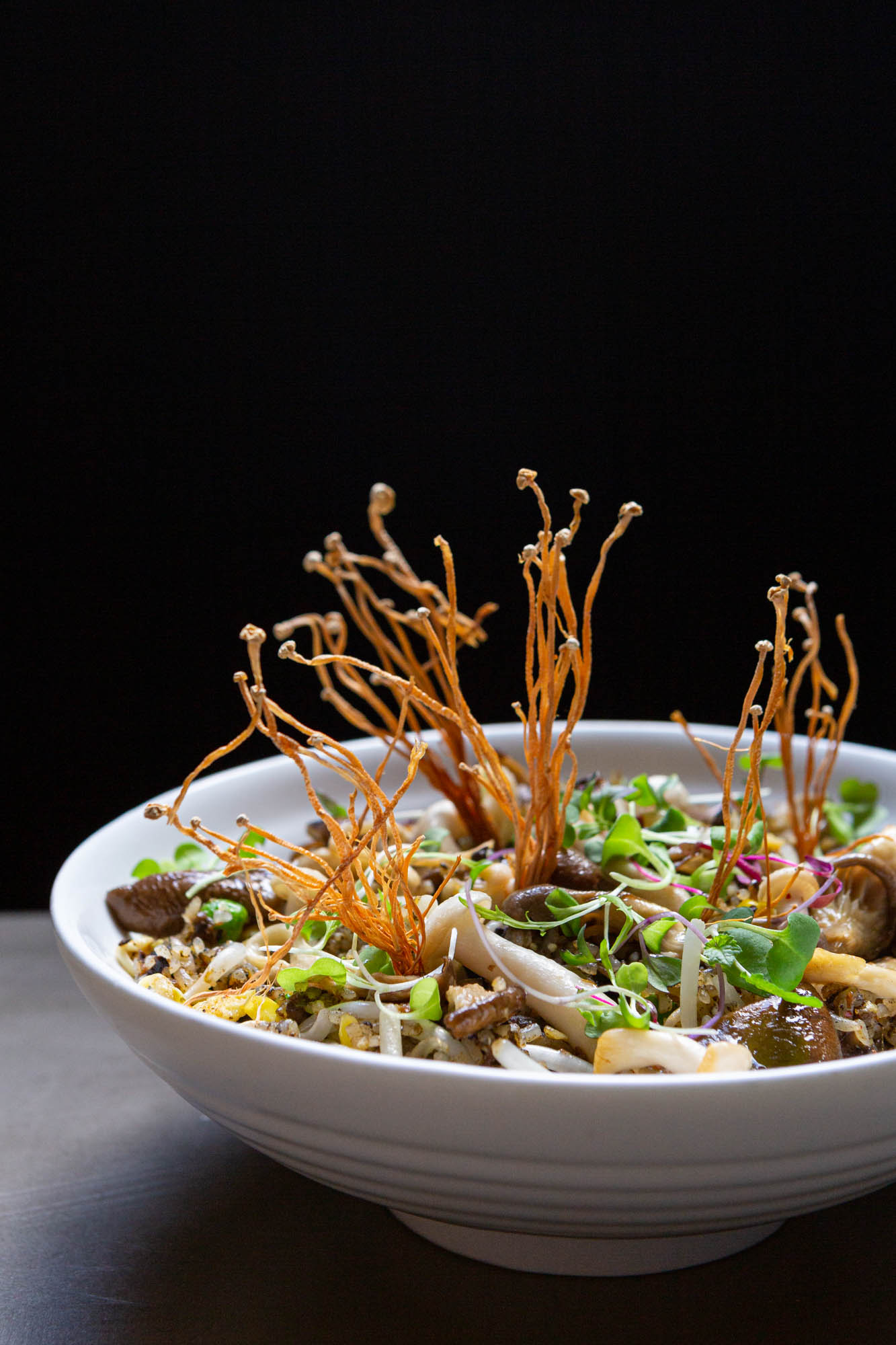

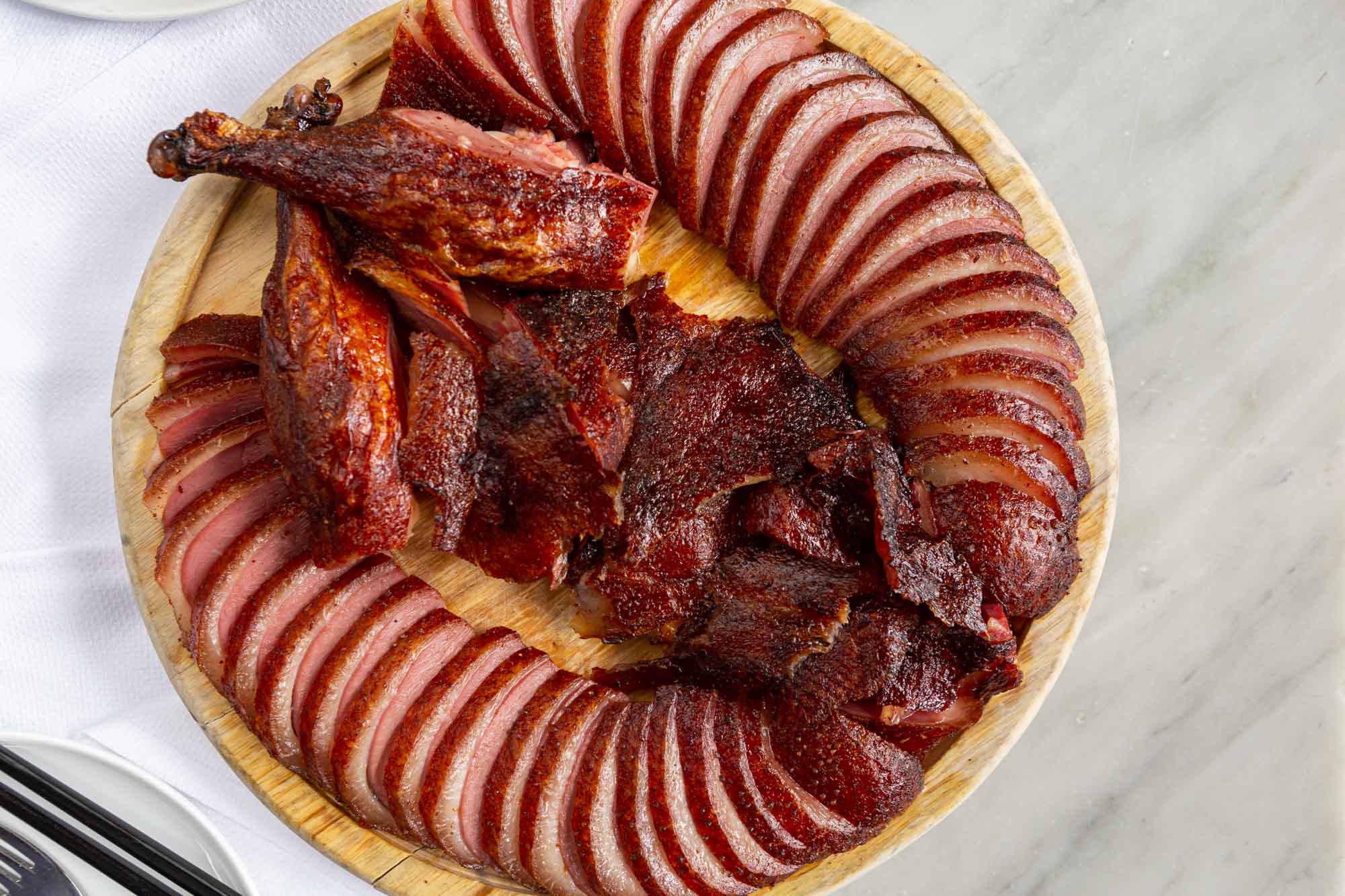

Almost one year on, is the award still impacting reservations?
Eric Chong: I would say R&D is still consistently busy, however, it is hard to know if that is due to the MICHELIN Guide or just regular business. A few customers still take photos with the Bib Gourmand plaque or mention they are making their way through the guide.
Have there been any downsides or challenges to the recognition?
Eric Chong: I think a downside is the eternal pressure the restaurant will always have to retain the award and stay on the list. Although that is not really a downside in my opinion as pressure is a good environment to be in to keep high standards. Never knowing who could be a MICHELIN inspector is another reason why all guests should always be treated to an amazing experience!
Do you have any advice for Toronto chefs or restaurateurs who might be new to the lists?
Eric Chong: Honestly, I am still learning myself. I feel that only the best and the greatest give advice to people, and I still don’t feel that that is me. So if any chefs want to give me advice I’ll happily take it!
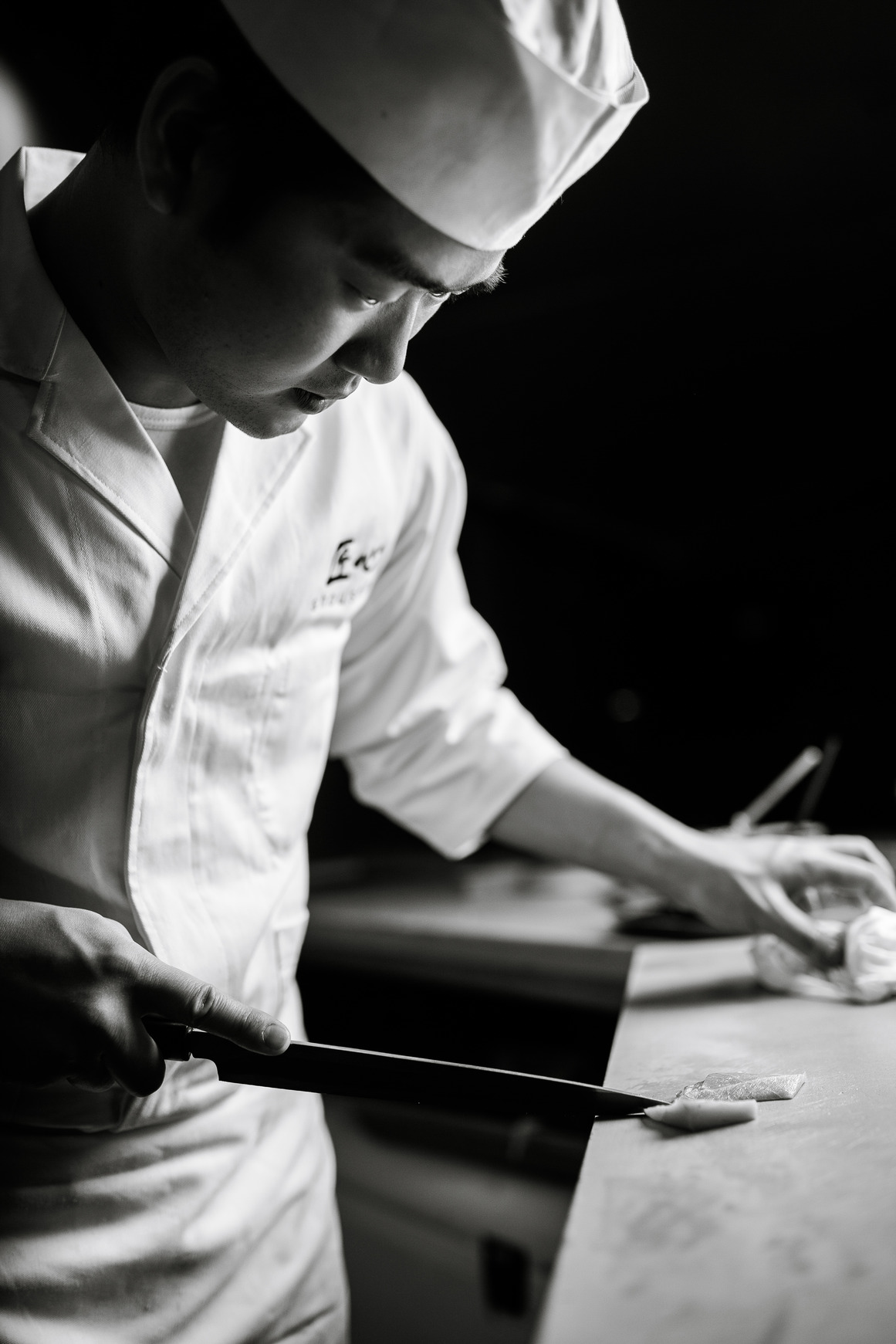

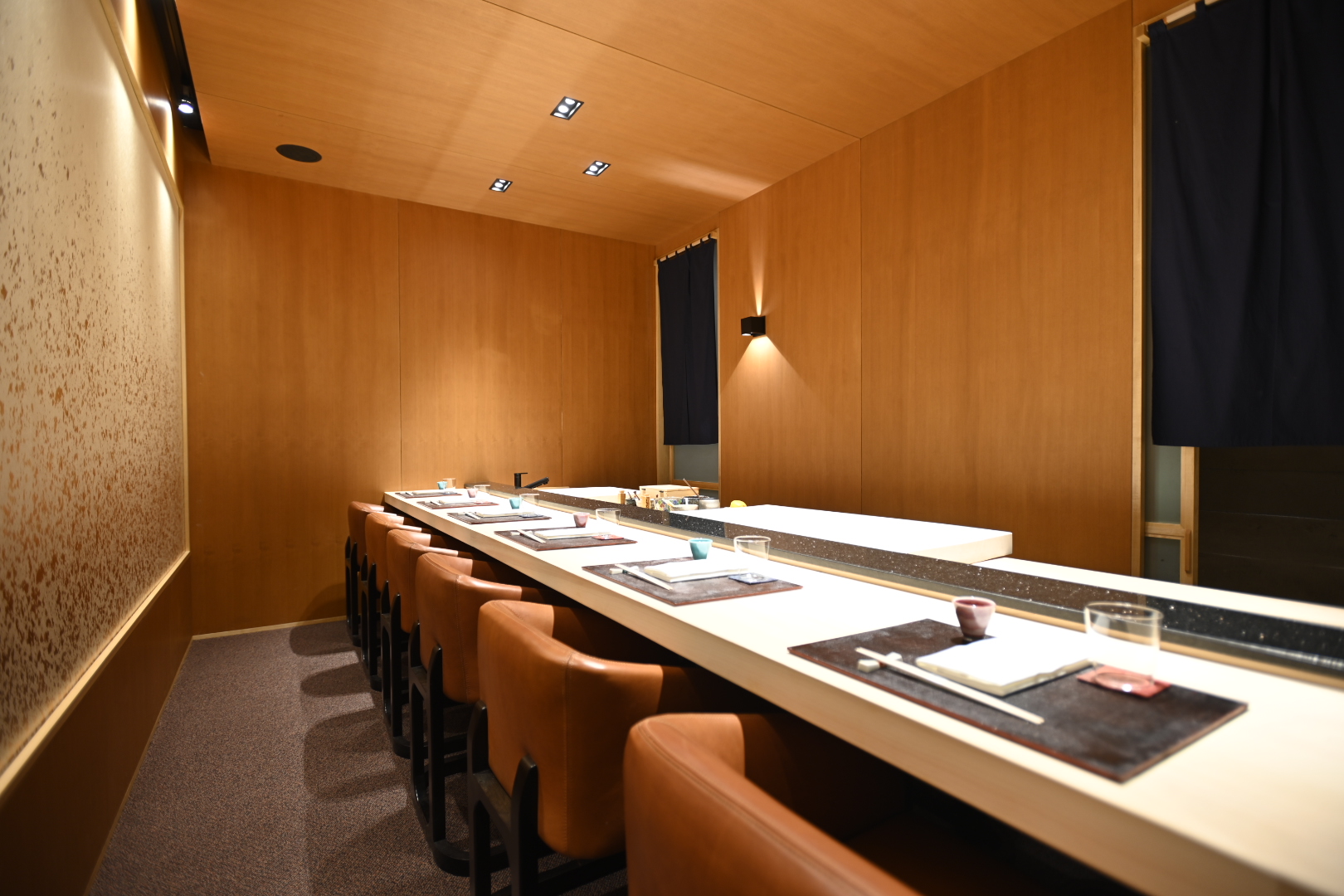

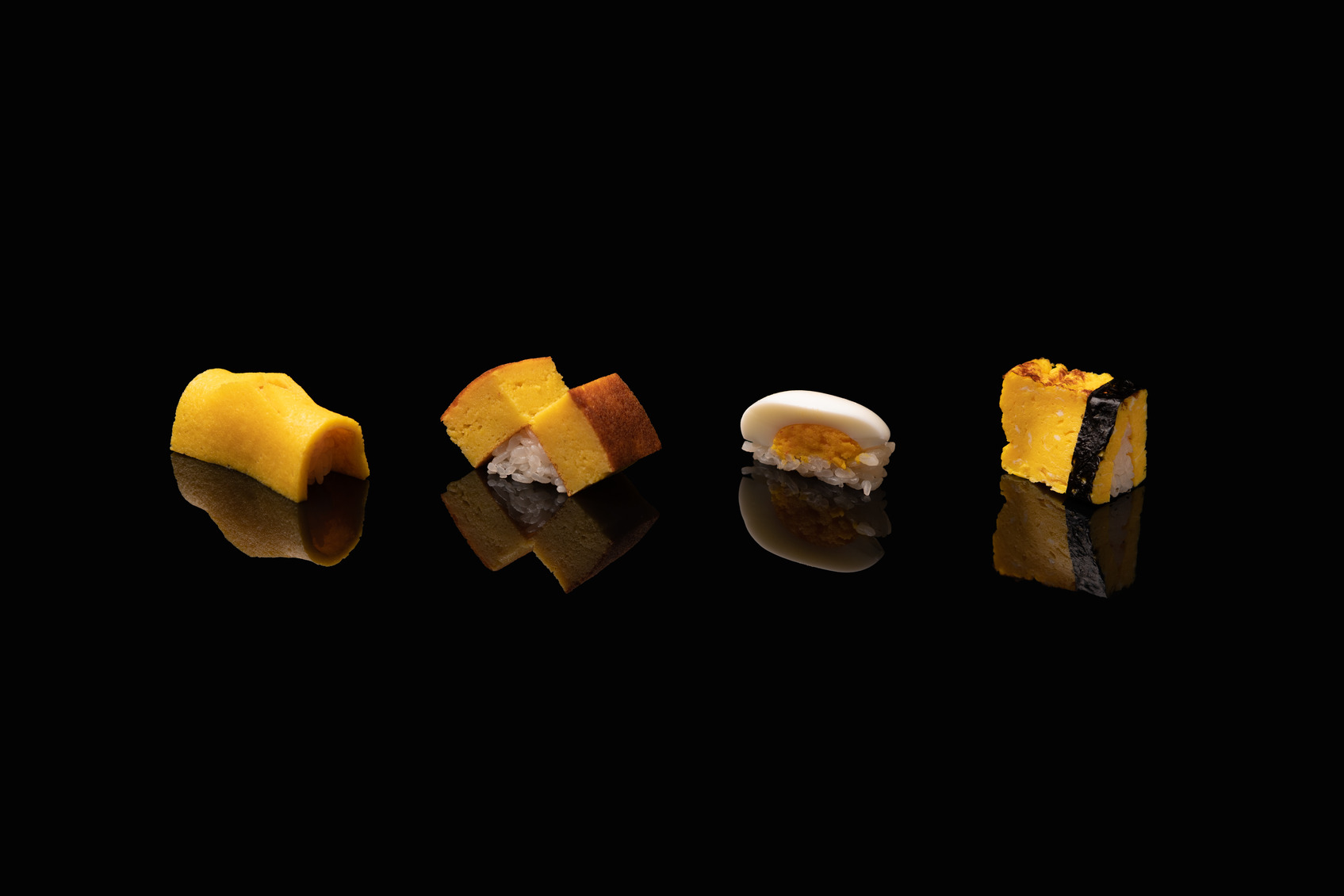

Jackie Lin
Chef and Owner
Designation: One Star
Were there any immediate impacts for your restaurant after receiving a MICHELIN star?
Jackie Lin: Not really, because we’re really reservation-based. I think there were more people to reserve a little bit more in advance, but we only allow people to book one month in advance. So there wasn’t much of that so-called impact because before then we were already [mostly] booked for the whole solid month, [although] we also reserved some of the seats on our end for our regular clients. People have maybe followed the Instagram account a little bit more and things like that.
Almost a year on, is your MICHELIN star still impacting reservations?
Jackie Lin: I think in a way, yes. I think right now, Canada in general is just so expensive. Everything is so expensive. We’re on the even more expensive side of it. And then people have been traveling a lot. So I think the restaurant business has slowed down big time, especially for some of my Japanese cuisine fellows. But we’re actually okay, we’re actually not bad at all. And then I think [this is] probably thanks to the MICHELIN Guide, [because] when people were thinking of celebrations and things like that, I think they would…[look] at the MICHELIN Guide and see where they should go and things like that.
Do you have any advice for Toronto chefs or restaurateurs who received their first MICHELIN star this year?
Jackie Lin: I can’t speak for everybody because the nature of each and every single restaurant would be a little different. But I would say if you do have regular clients, take care of them first.
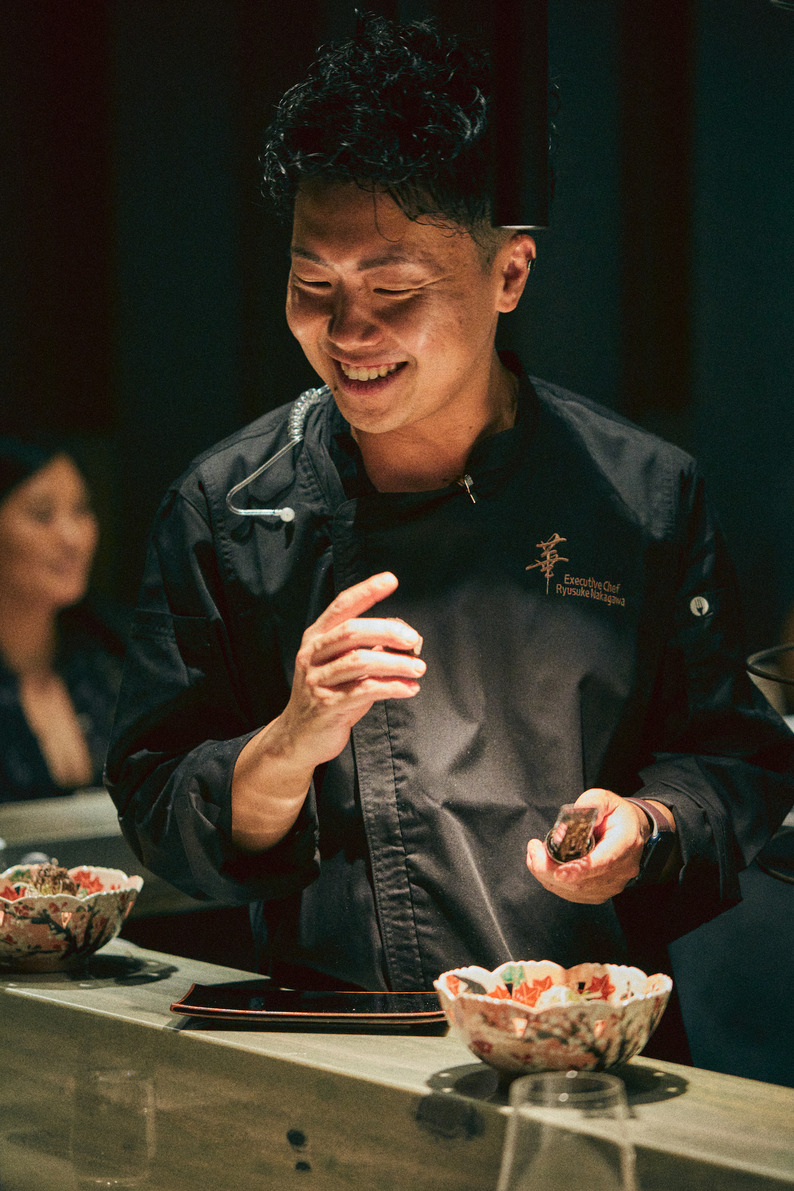

Ryusuke Nakagawa
Chef
Designation: One Star
Were there any immediate impacts for your restaurant after receiving a MICHELIN star?
Ryusuke Nakagawa: This was the biggest opportunity for Aburi Hana to get so much attention since we opened. The same night of the announcement, we were getting booked up for reservations and the momentum has been going since. Getting the MICHELIN was so important to me because it means I can share the concept of Kaiseki cuisine with the world.
What has been your favourite memory at the restaurant since receiving the recognition?
Ryusuke Nakagawa: Overall, I’ve enjoyed the overall increased exposure—not just for my restaurant but for myself as a chef. I think the most cherished memories however were the collaborations I did with other chefs and restaurants that I’ve long admired, like Restaurant Pearl Morissette and Langdon Hall. I definitely think getting the Michelin star helped to fast-track opening many doors.
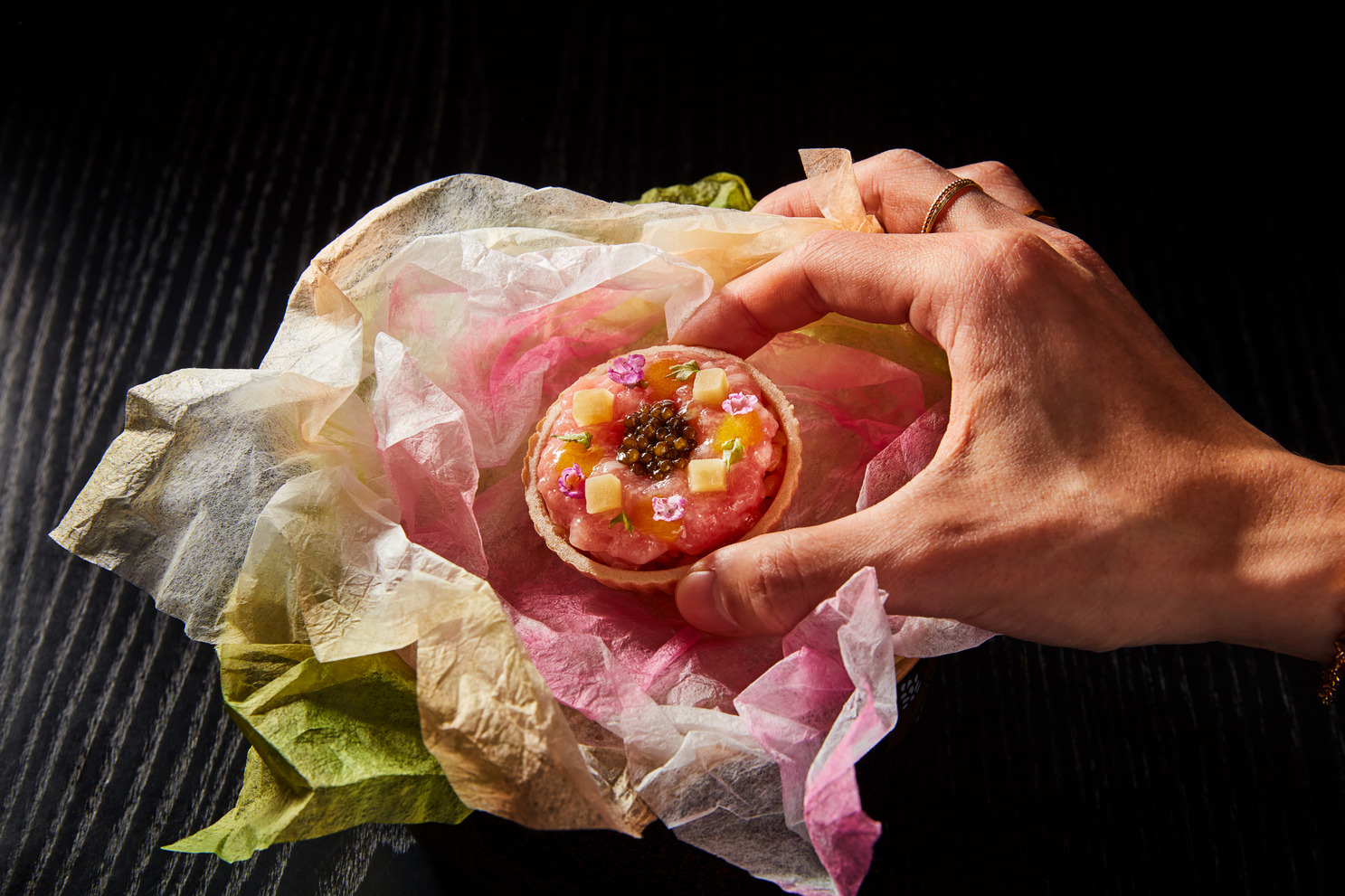

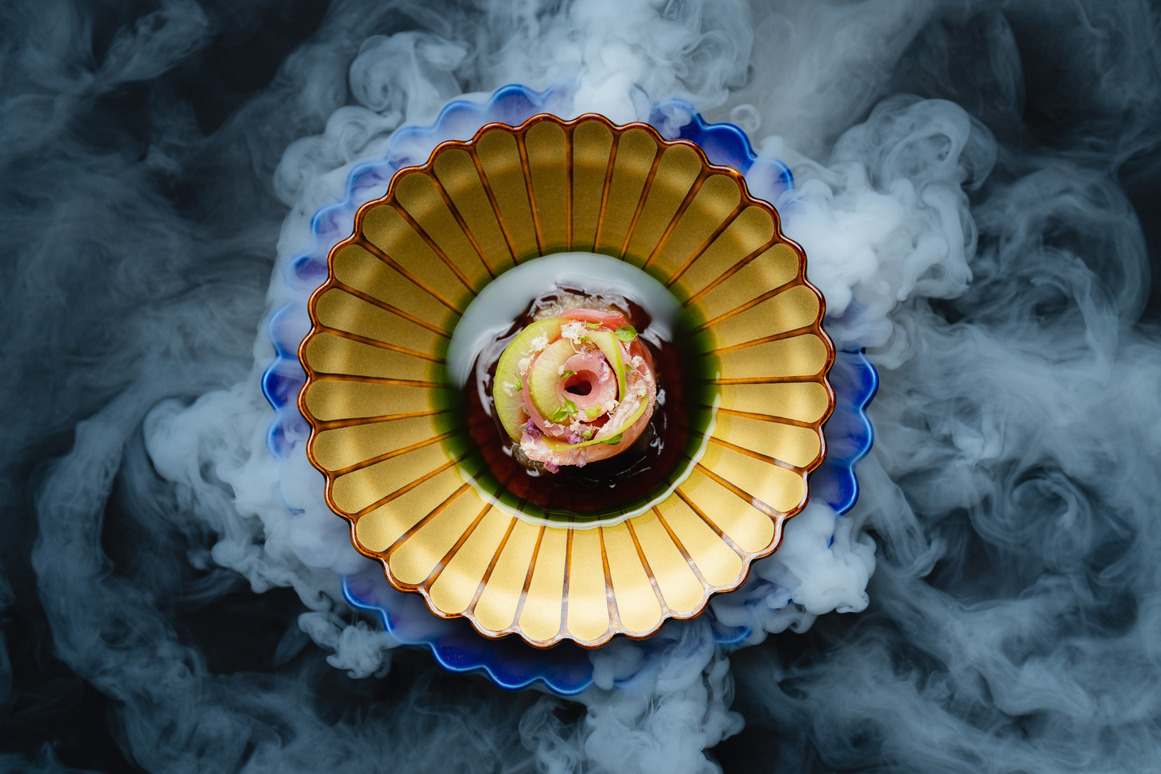

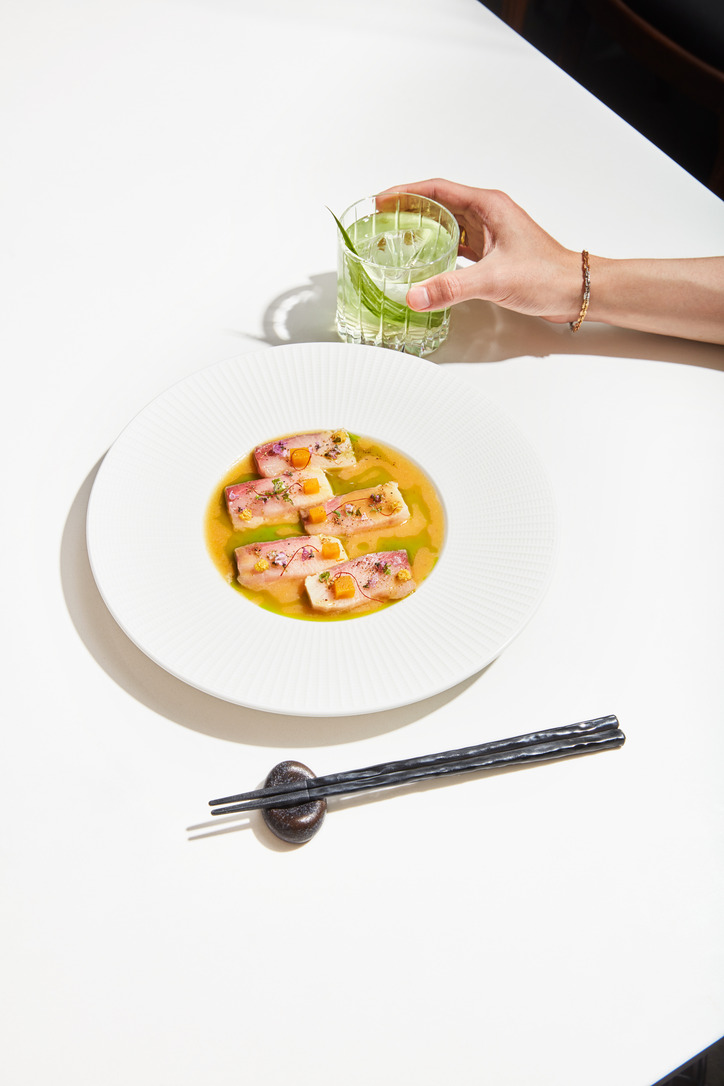

What is most surprising for you about being on the inaugural Toronto list
Ryusuke Nakagawa: When it was announced, I was surprised and happy that it included so many Japanese restaurants. To me, that indicates that Canada is not only accepting of refined Japanese cuisine, but is embracing it. It’s wonderful because it means there is a growing understanding and appreciation of culinary genres beyond ramen and sushi.
Almost one year on, is your MICHELIN star still impacting reservations?
Ryusuke Nakagawa: I think we would have gotten to the level of being consistently booked up eventually, but getting the MICHELIN star definitely expedited us at lightning pace.
Have there been any downsides or challenges to the recognition?
Ryusuke Nakagawa: I don’t think it really came with any negative aspects. If anything, it raised the bar for us to constantly aim for higher which is in our DNA anyway, so it’s not a problem.
Do you have any advice for Toronto chefs or restaurateurs who received their first MICHELIN star this year?
Ryusuke Nakagawa: It can be overwhelming at first on so many levels. There’s a lot of media attention, we’re scrutinized more because we have a MICHELIN star and, overall, there are so many new things that eat up your time. Enjoy the fruits of your labour and more importantly, make sure your team knows how valued they are. And don’t get lost in all the chaos. Always remember why you love what you do and maintain the philosophy of the dishes and services that are your foundation. Share the ethos and philosophy of your craft with those who create the food with you so that when your guests consume it, they understand clearly what it is all about.
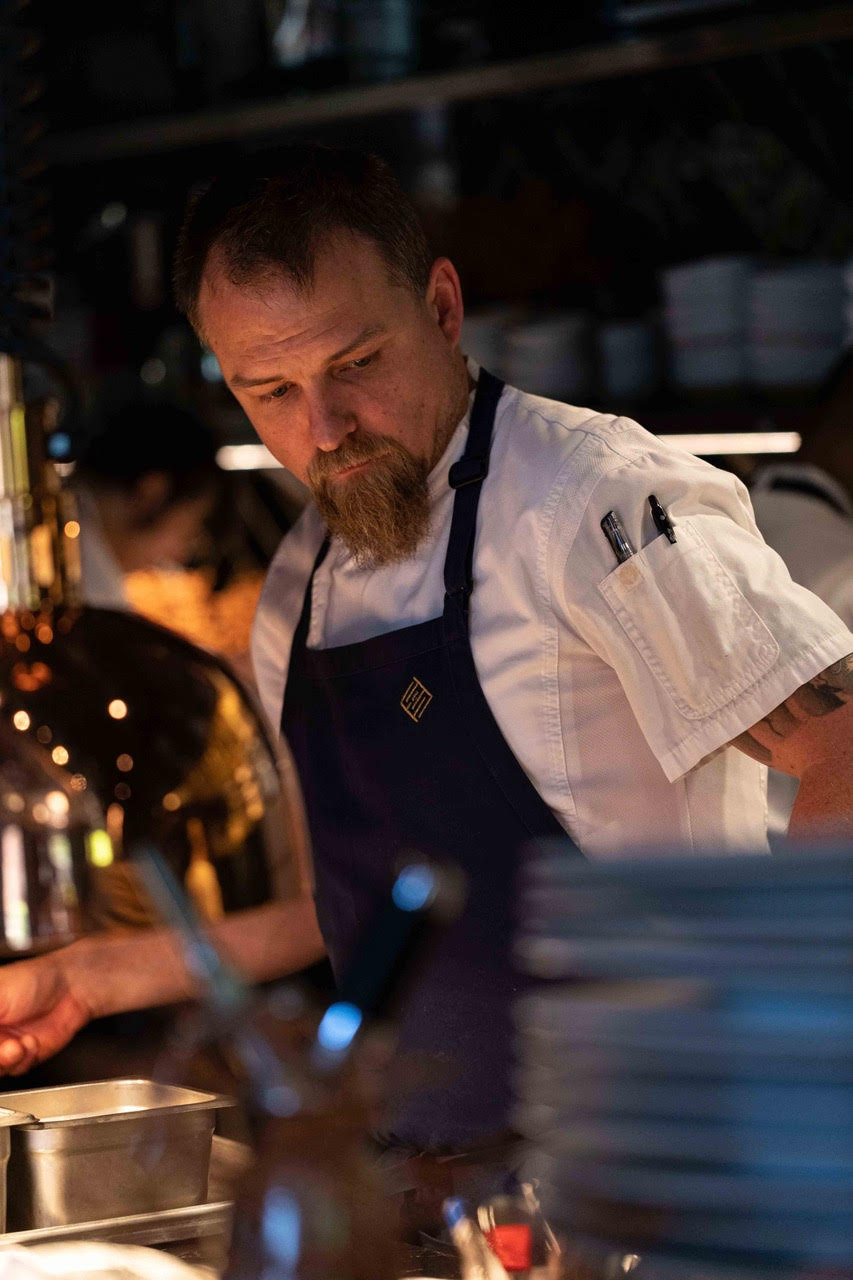

Quinton Bennett
Chef Patron
Designation: One Star
Were there any immediate impacts for your restaurant after receiving a MICHELIN star?
Quinton Bennett: Yes definitely, we noticed an increase in reservations and general interest in the restaurant.
What has been your favourite memory at the restaurant since receiving the recognition?
Quinton Bennett: The night receiving the award was a high. Coming back to the restaurant with the star and seeing the reactions and impact it had on the staff and family members who have all sacrificed so much to their craft to have this ultimate accolade.
What is most surprising for you about being on the inaugural Toronto list?
Quinton Bennett: I would say, that to be a part of culinary history in Canada is a timeless and once-in-a-lifetime achievement that will never be forgotten or taken for granted.
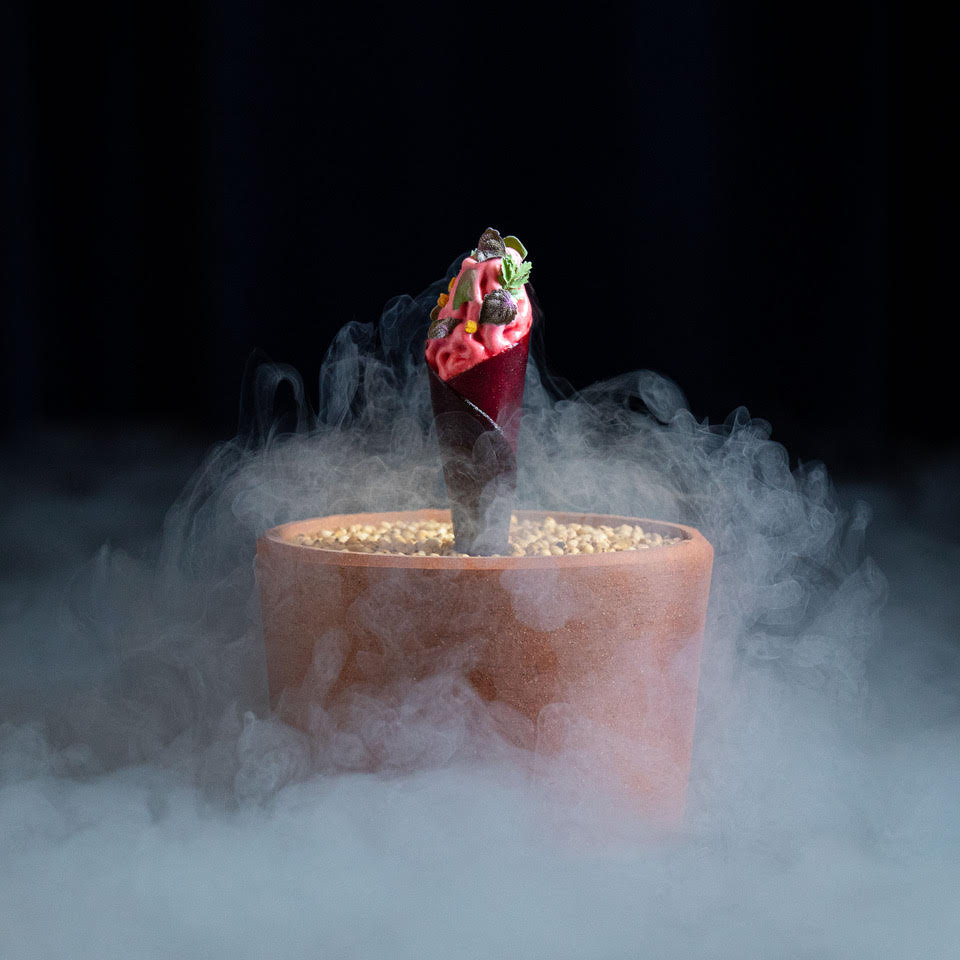

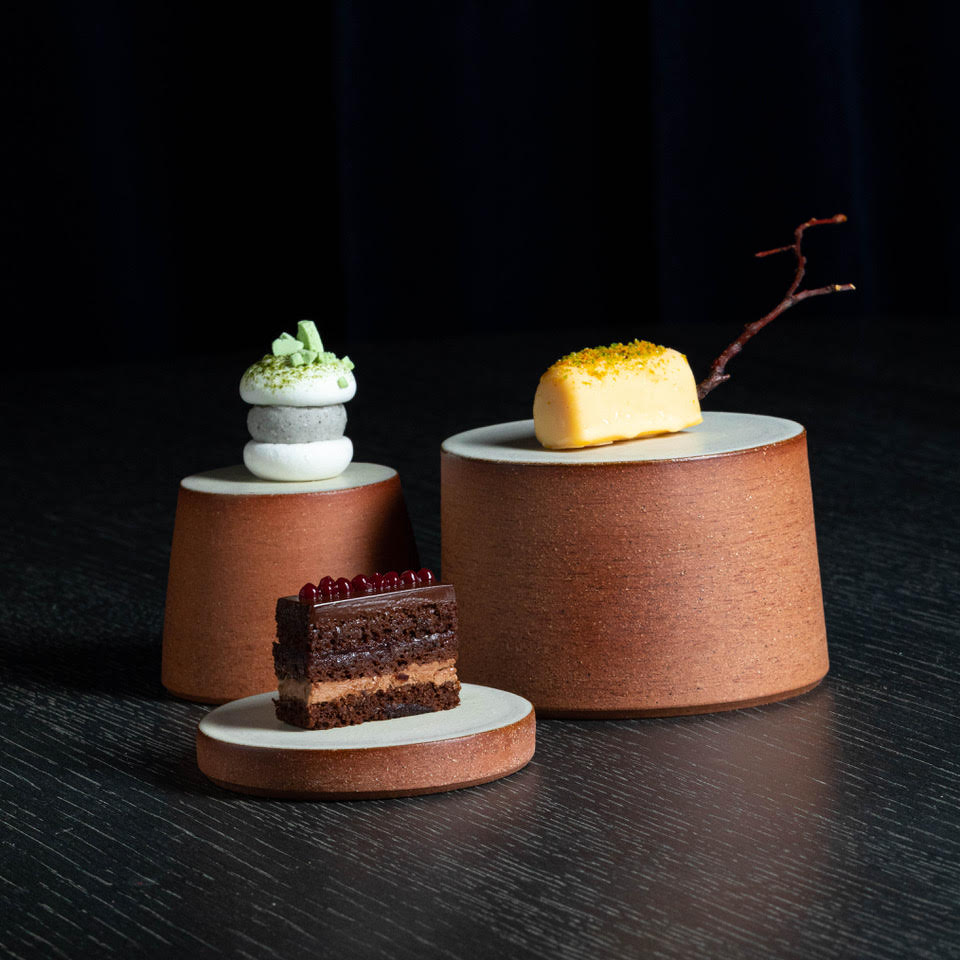

Almost a year on, is your MICHELIN star still impacting reservations?
Quinton Bennett: Yes, the reservations are still strong.
Have there been any downsides or challenges to the recognition?
Quinton Bennett: No! There is no downside. Yet there is more pressure, yes! However, pressure is a good thing if it is used to motivate in the right manner.
Do you have any advice for Toronto chefs or restaurateurs who received their first MICHELIN star this year?
Quinton Bennett: I would say well done to you all, your hard work and dedication has paid off. You are finally recognized on the world stage, this is an incredible achievement. Remember it, embrace it, and let it fuel you for further success. But, be warned the real work has just begun and you will be tested physically and mentally. As with all success, there will be good days and bad days. There will be people who try to tear you down and say, “You aren’t worthy.” They will try to get you to change, or get a piece of you. But you got this far, so rise above it and stay true to yourself and your team that got you there.
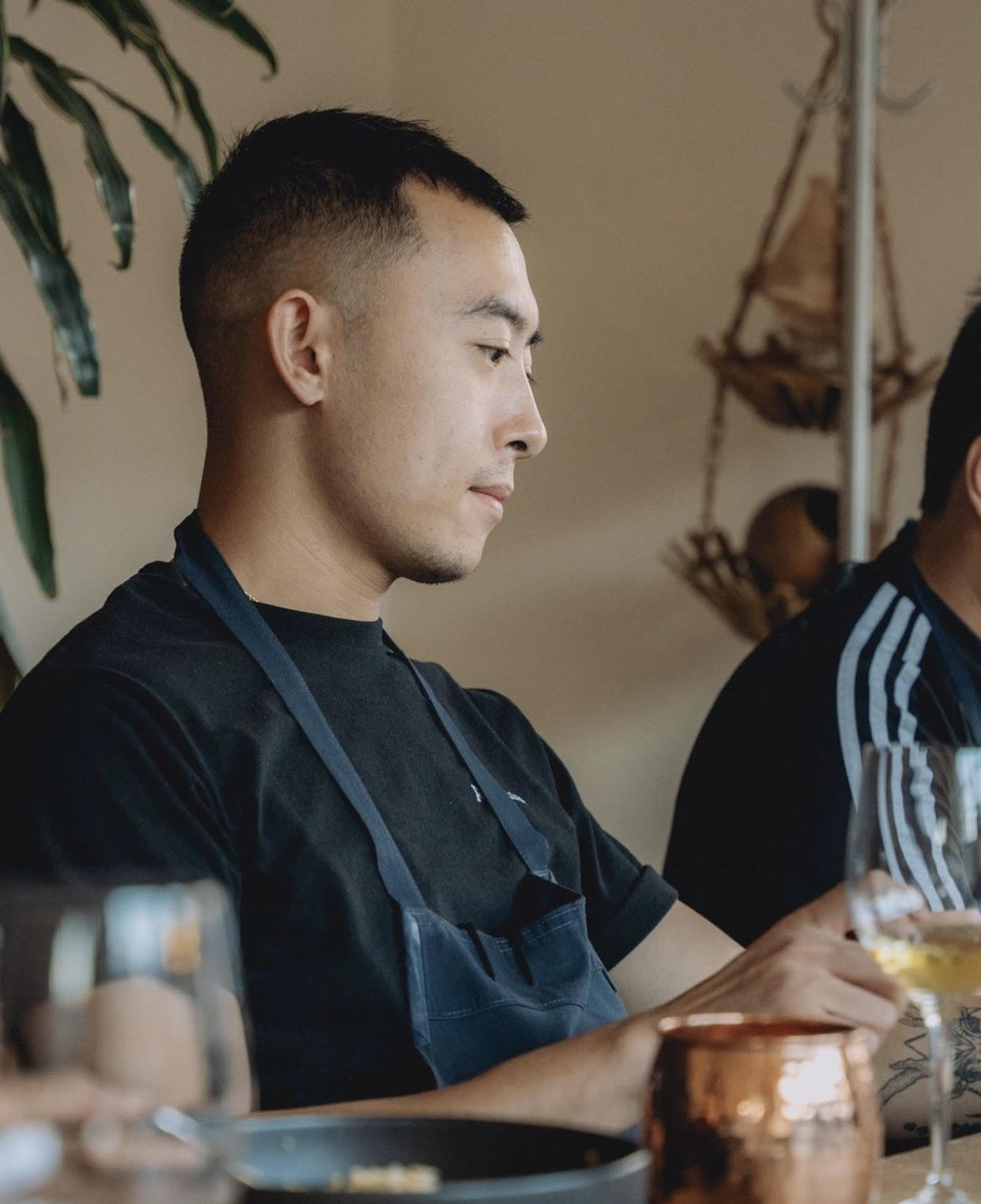

Ronnie Xu
Chef
Designation: Bib Gourmand
Were there any immediate impacts for your restaurant after receiving a Bib Gourmand Award?
Ronnie Xu: Not the first month. We actually have lots of people come in because of the MICHELIN things after a month, once they announced it.
What has been your favourite memory at the restaurant since receiving the recognition?
Ronnie Xu: Obviously once I see more and more customers come in and then they leave happy, that’s probably the best moment for me and my team.
What is most surprising for you about being on the inaugural Toronto lists of restaurants?
Ronnie Xu: That is the most surprising thing! Before MICHELIN happened, [people didn’t really] know us, and the moment when I saw the invite from MICHELIN, I said, “Oh, how [did] they find out about us?”
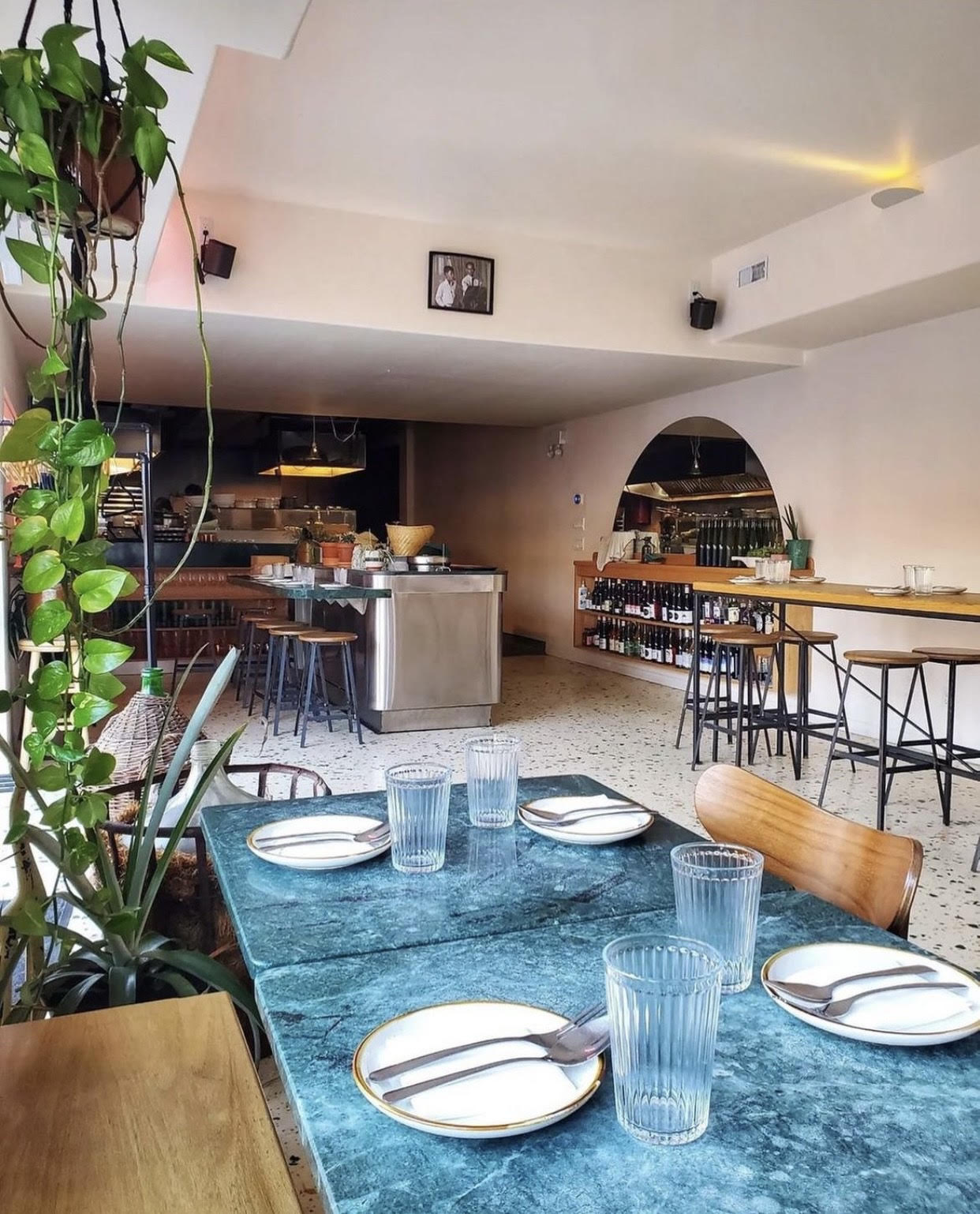

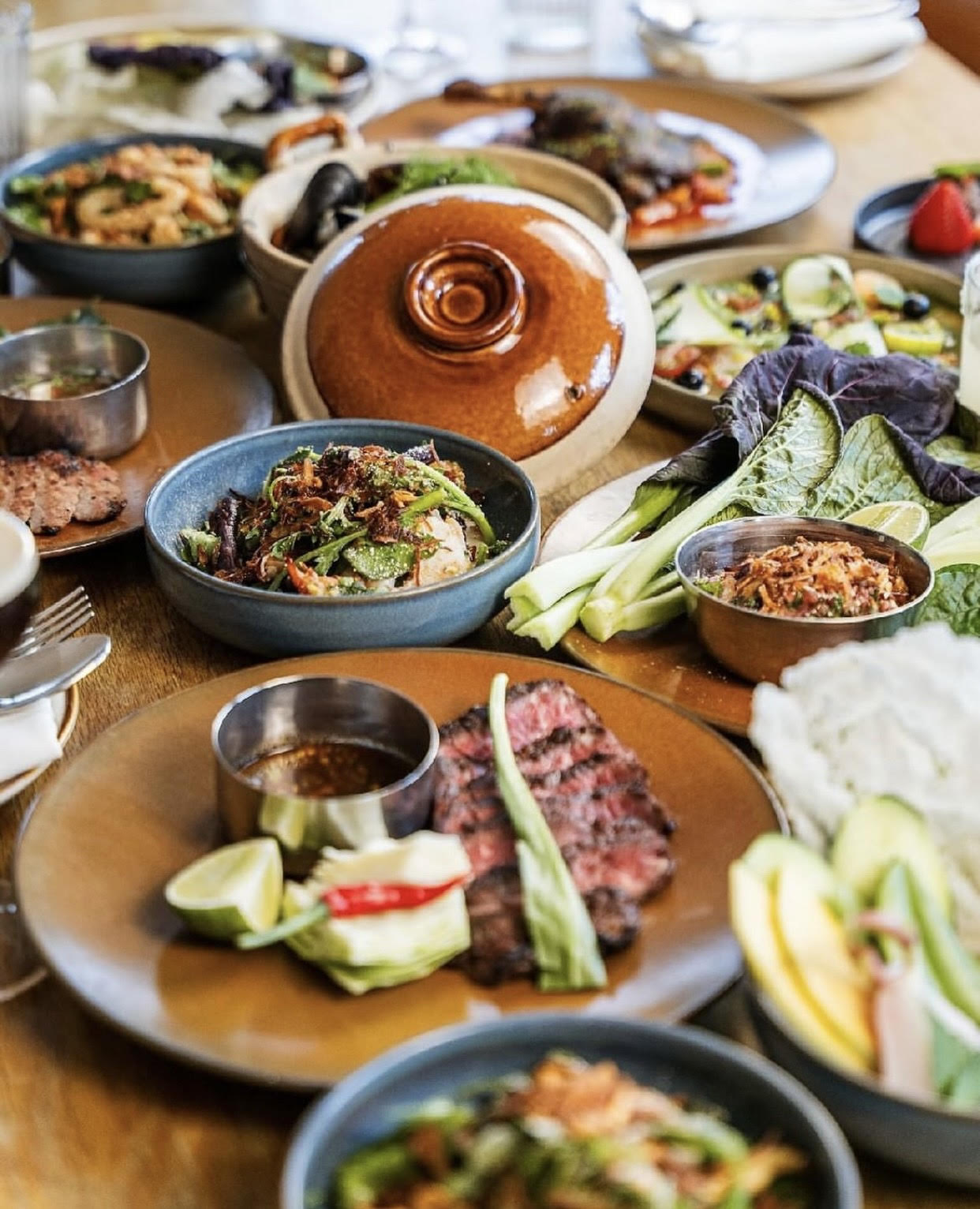

Almost one year on, is the award still impacting reservations?
Ronnie Xu: One hundred percent. There are still…customers coming in because they know us from the MICHELIN [guide], like a MICHELIN Bib Gourmand, that’s pretty obvious. We have all the signs, everything on the front door. But I would say we also have lots of repeat customers and then also people know us from either TikTok or Instagram. I would say it’s part of the reason, but it’s not a majority part of the reason.
Do you have any advice for Toronto chefs or restaurateurs who might be new to the lists?
Ronnie Xu: I don’t have anything to suggest. This is still new for us. I would say just keep doing your own thing.
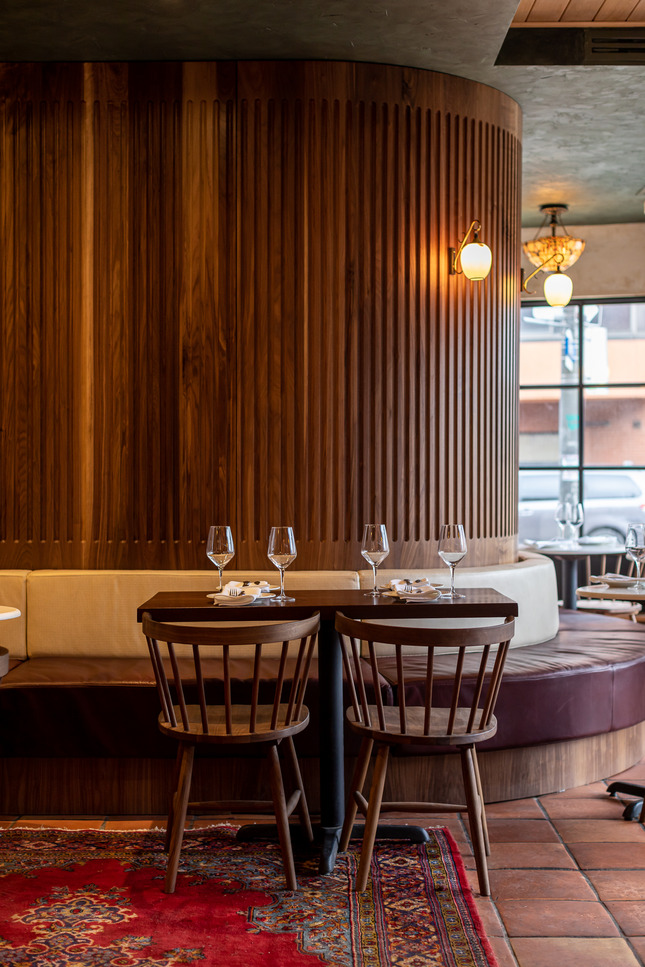

Kyle Rindinella
Co-Executive Chef and Partner
Designation: Bib Gourmand
Were there any immediate impacts for your restaurant after receiving a Bib Gourmand Award?
Kyle Rindinella: Yeah, it was great. The immediate impact was…we saw an influx of new guests, which for us was great because at that point we had been open for 12 years. We’re now on our 13th year. So although we’ve always had a steady flow of regulars, it was really nice to get an influx of new guests to an Italian restaurant in the middle of little Portugal, in a little west-end enclave of Toronto.
What has been your favourite memory at the restaurant since receiving the recognition?
Kyle Rindinella: Receiving it was great at the award ceremony because it was a complete surprise. I got an invitation to the party and the announcements, but I had maybe foolishly assumed it was just a whole bunch of restaurants and a big industry party, and maybe 10 percent of us there were getting an award. I didn’t know that all chefs that were present were there because they were getting an award. So that was fun.
But my personal favourite thing was after the award ceremony, I went back to the restaurant around 11 o’clock. The restaurant was kind of thinning out guest-wise, and getting to share it with my staff. We opened a couple bottles of bubbles and we got to say thank you to our staff.
What is most surprising for you about being on the inaugural Toronto lists of restaurants?
Kyle Rindinella: What I want to say is that it’s surprising that still to this day…we’re still having people saying, “This is our first time here, we’ve heard about you in MICHELIN.”
Almost a year on, is the award still impacting reservations?
Kyle Rindinella: One-hundred percent. What we’ve noticed, and … I don’t know if it was a Covid thing or a MICHELIN thing, but this year has been a great year for us. It’s also been the first full year that we’re open after Covid.
It’s been great and still is great to have new people come into the restaurant and say, “I’ve never been here before, I’m going to leave it in your hands.” And we can kind of show what we do and show off what are now our classics to new people. It’s great to always be able to serve regulars and do fun things for them, but it’s also still invigorating to see someone who’s never been in the restaurant before, gets to experience the space, the service, the food, and then hear something from them like, “Oh my God, we were in Rome last year and this is just as good.”
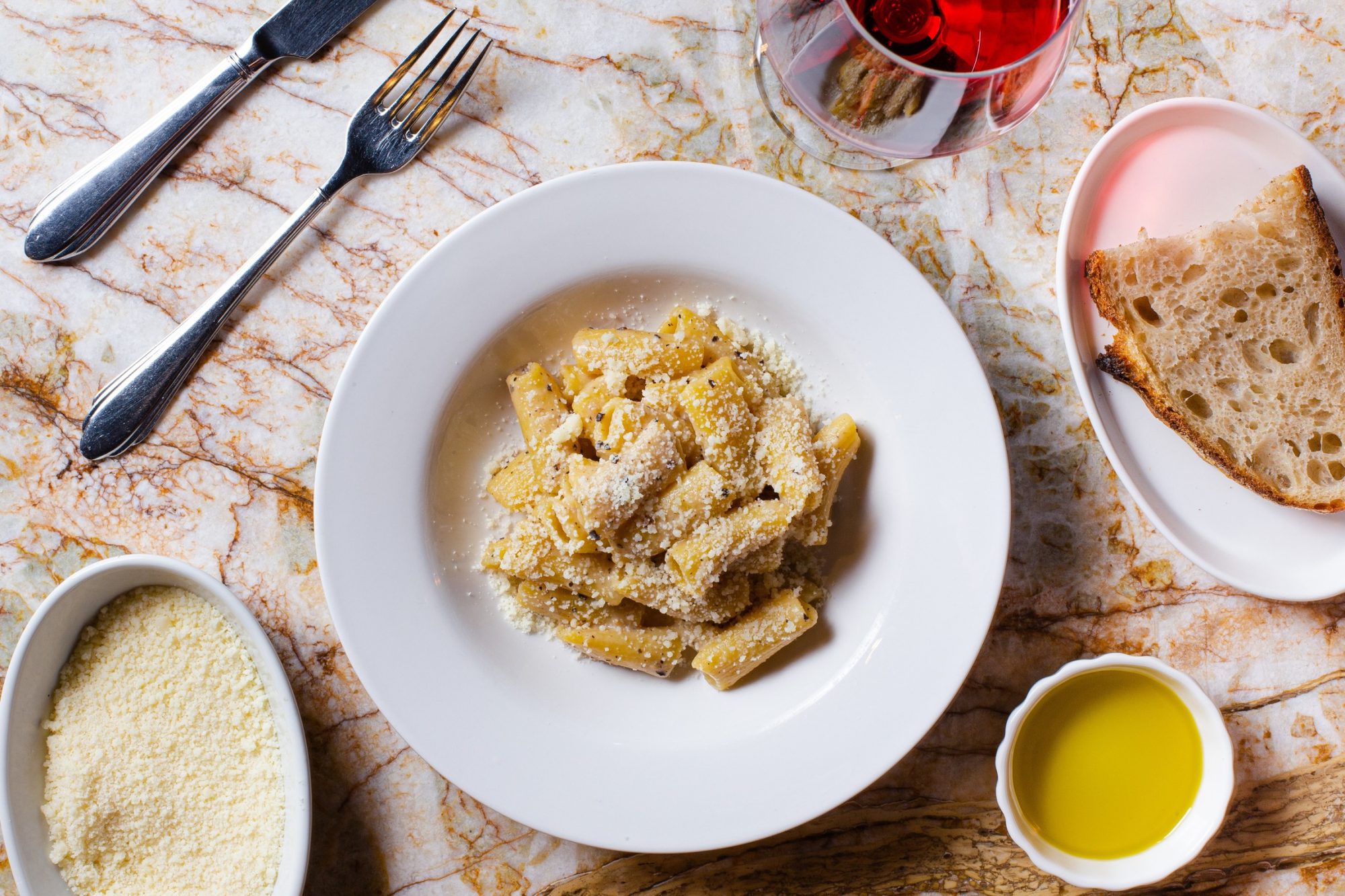

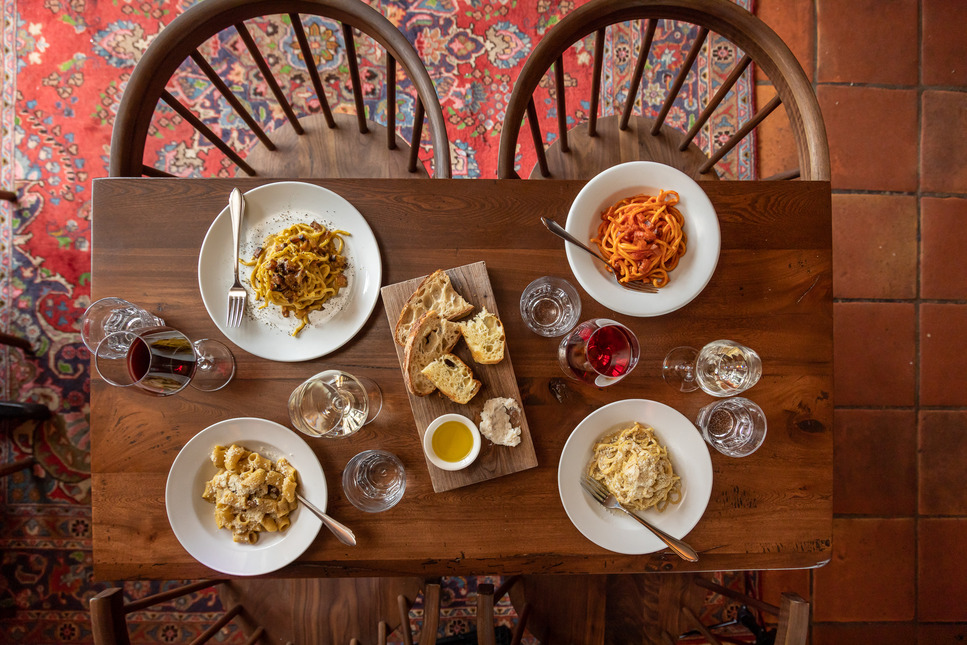

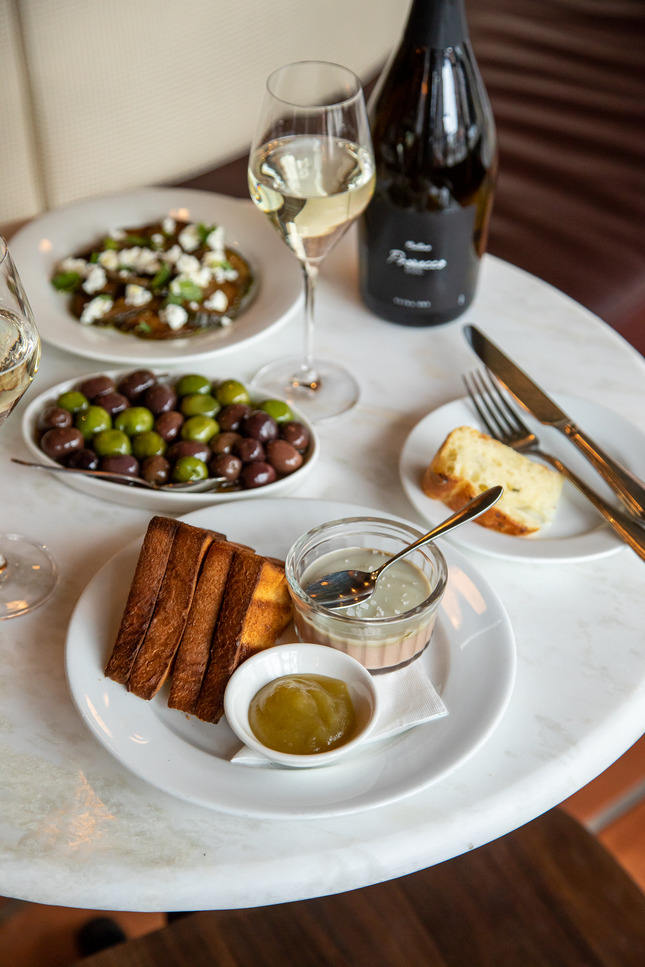

Have there been any downsides or challenges to the recognition?
Kyle Rindinella: The one thing that we’ve noticed, sometimes, is guests not always understanding what our position on the list is. There’s a difference between being a Bib Gourmand, just being in the guide with no awards—which a lot of my favourite restaurants in the city are, and I still love them—and then getting a star. And sometimes, we’ve heard from guests things like, “Well, you are a MICHELIN-recognized restaurant. It should be this.” And it’s like, “No, we’re a MICHELIN-recognized restaurant, because we’re a great neighbourhood restaurant that is affordable.”
The challenge has been, and it’s not always a challenge, but sometimes it’s people understanding what the different tiers of recognition mean.
Do you have any advice for Toronto chefs or restaurateurs who might be new to the lists?
Kyle Rindinella: Have fun, keep it fun. Remember why you got into doing this…and why you opened your restaurant, took on the role as chef or GM of your restaurant, and chose to run a restaurant in Toronto. Just keep doing that because there’s got to be a good reason as to why you got recognized. Just keep doing what you’ve always loved, and have always done. According to MICHELIN, it must be working.
Interviews have been edited for length and clarity.


